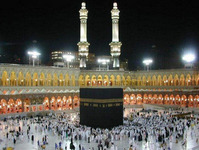Umrah is much more than a physical journey — it’s a spiritual odyssey that connects Muslims from around the world to Allah. Yet, it’s not only the sacred rituals that make the experience transformative; it’s also the cultural exchange that takes place during the pilgrimage. When people of various cultures, backgrounds, and languages come together in Makkah and Madinah, a unique form of social enrichment unfolds.
In this article, we’ll explore how cultural exchange during Umrah deepens the connection between pilgrims, enhances the understanding of Islam, and promotes a spirit of unity within the global Muslim community.
1. The Essence of Umrah: Sacred Rituals in a Sacred Space
At its core, Umrah is a deeply spiritual experience. The rituals — such as Tawaf, Sa’i, and Tahallul — are acts of worship meant to cleanse the soul and bring the believer closer to Allah. The beauty of these acts lies in their simplicity: every Muslim, regardless of nationality, language, or culture, performs them with the same intention.
However, the sacredness of Umrah isn’t limited to its rituals alone. The spiritual act of devotion is enhanced by the social interactions and cultural exchanges that occur during the pilgrimage. When pilgrims from diverse backgrounds come together, they contribute to a rich tapestry of experiences, creating an atmosphere of shared faith and collective worship.
2. Cultural Diversity at the Heart of Umrah
The Kaaba, the focal point of Umrah, symbolises the unity of the Muslim ummah. Pilgrims from around the world gather in Makkah to perform their worship and seek Allah’s forgiveness, and in doing so, they embody the beauty of Islam’s universal appeal. This multicultural convergence is one of the most striking aspects of the Umrah experience.
- Language diversity is immediately noticeable, with pilgrims speaking languages such as Arabic, English, Urdu, Turkish, Swahili, Bengali, and Malay, among others.
- Traditional dress varies, from the Ihram worn by men and women to the unique cultural garments of pilgrims from different regions.
- Cuisine also becomes an aspect of cultural exchange, with various foods shared among pilgrims during meal times, reflecting the culinary traditions of different countries.
This cultural melting pot enhances the overall pilgrimage experience. It’s not just about personal devotion but also about embracing and appreciating the diversity of the Muslim world. Through these interactions, pilgrims learn to recognize the universal brotherhood of Islam, transcending national, ethnic, and linguistic barriers.
3. Connecting Through Shared Worship
While Umrah’s rituals are individually performed, they are always shared in community. The act of worship becomes a social experience, where believers come together to pray, reflect, and seek Allah’s mercy.
This shared sense of purpose strengthens the bonds between pilgrims, regardless of their cultural backgrounds. Tawaf, for example, is performed in a synchronized manner, with Muslims moving around the Kaaba in a single rhythm. The collective prayer (salah) unites the pilgrims in devotion to Allah, and the sound of millions of voices reciting the Talbiyah (the pilgrimage declaration) creates a sense of awe and unity.
When cultural differences fade in the face of shared worship, it enhances a pilgrim’s faith and spiritual consciousness. The communal aspect of Umrah is a constant reminder that Muslims, despite their cultural differences, are all united in servitude to Allah.
4. Bridging the Gap: Personal Connections and New Friendships
One of the most rewarding aspects of Umrah is the opportunity to form meaningful connections with fellow Muslims from different parts of the world. These relationships are often born out of shared experiences during the pilgrimage, such as waiting in lines together, praying side by side, or helping each other with logistical challenges.
- Friendships formed in Makkah and Madinah are often based on mutual respect, shared faith, and the profound experiences of performing sacred rituals together.
- Mentorship and advice are common, with more experienced pilgrims offering guidance to those performing Umrah for the first time. These exchanges foster a spirit of camaraderie and support.
Through these social interactions, pilgrims also learn about the cultural values and traditions of others, gaining a deeper appreciation for the diversity within the Islamic faith. Whether it’s learning about different Islamic practices or discussing the cultural nuances of religious observance, these personal connections enrich the Umrah experience.
5. Cultural Exchange Beyond the Rituals: Learning from Each Other
While Umrah is primarily a spiritual pilgrimage, it also serves as a platform for cultural learning and exchange. As pilgrims spend time together in the holy cities, they have opportunities to share their cultural stories, practices, and perspectives. This exchange leads to a broader understanding of how Islam is practiced across the globe.
- Religious customs differ slightly from region to region, and pilgrims may discuss the particular ways they observe Ramadan, Eid, or other significant events in Islam.
- Social norms and the ways people conduct themselves during Umrah, such as greeting one another or respecting space in crowded places, provide valuable insights into cultural etiquette.
- Family dynamics may also be shared, as pilgrims often travel with their families, offering a glimpse into how faith is passed down from generation to generation in various cultures.
These cultural exchanges help break stereotypes and foster a spirit of global unity, helping Muslims understand one another on a deeper level and enriching the sense of community.
6. The Role of Service: Community Building and Social Responsibility
The spirit of service and charity is an important part of the Umrah experience. Many pilgrims take the opportunity to give back to the local community through acts of kindness and generosity. This could be through volunteering to help other pilgrims or making donations to local charities that support the people of Makkah and Madinah.
- Volunteering opportunities allow pilgrims to assist others in need, such as distributing water, guiding newcomers, or helping the elderly and disabled.
- Charitable donations support a variety of causes, from providing food to the poor to funding educational initiatives for local children.
By engaging in these acts of service, pilgrims experience a different side of Umrah — one that emphasizes community building and social responsibility. These acts also provide an opportunity for cultural exchange, as pilgrims witness how communities come together to help others, regardless of background or nationality.
7. The Digital Age: Virtual Connections and Modern Cultural Exchange
In today’s connected world, the cultural exchange during Umrah isn’t confined to face-to-face interactions. The digital age has enabled pilgrims to share their experiences with family and friends around the world through social media platforms, blogs, and online discussions.
Pilgrims often post about their journeys on platforms like Instagram, YouTube, or Twitter, sharing photos, stories, and reflections from their time in Makkah and Madinah. This virtual cultural exchange allows people to see the diversity of experiences and gain insights into the personal journeys of other Muslims across the globe.
In addition, many online forums and groups provide a space for pilgrims to connect before, during, and after their pilgrimage, exchanging travel tips, advice, and even spiritual guidance.
8. Conclusion: Enriching the Soul Through Sacred and Social Interaction
The experience of Umrah is not only about personal devotion to Allah; it is also about how pilgrims connect. The sacred rituals of Umrah are intertwined with the social interactions that take place between Muslims from diverse backgrounds. These cultural exchanges are a fundamental part of the pilgrimage, enriching each pilgrim’s journey both spiritually and socially.
As Muslims gather from around the world, they participate in a shared spiritual and social tapestry, where faith, culture, and humanity come together. The opportunity to learn from each other, form new relationships, and share common experiences strengthens the global Muslim community.
Ultimately, Umrah is a reminder that Islam’s message is universal — it transcends borders, cultures, and languages. The sacred and social elements of Umrah work in harmony to create a journey that is not only transformative but also uniting, making it an enriching experience for all who embark on it.














